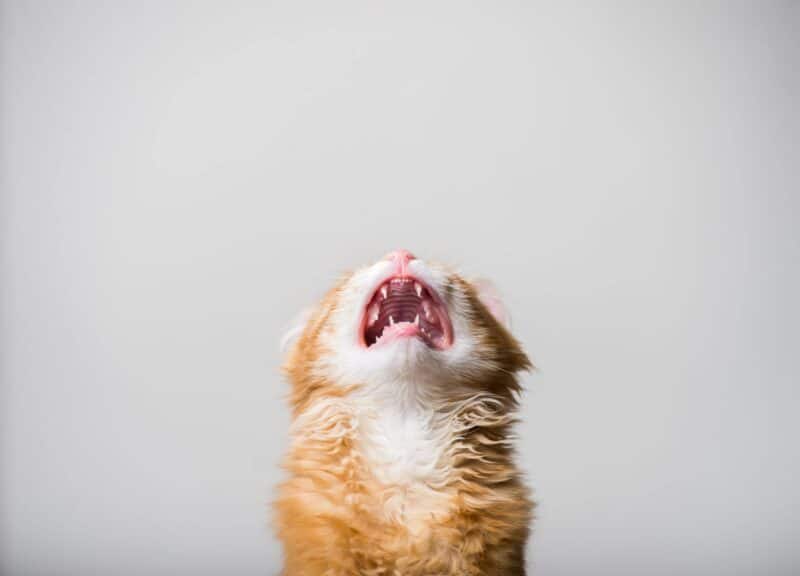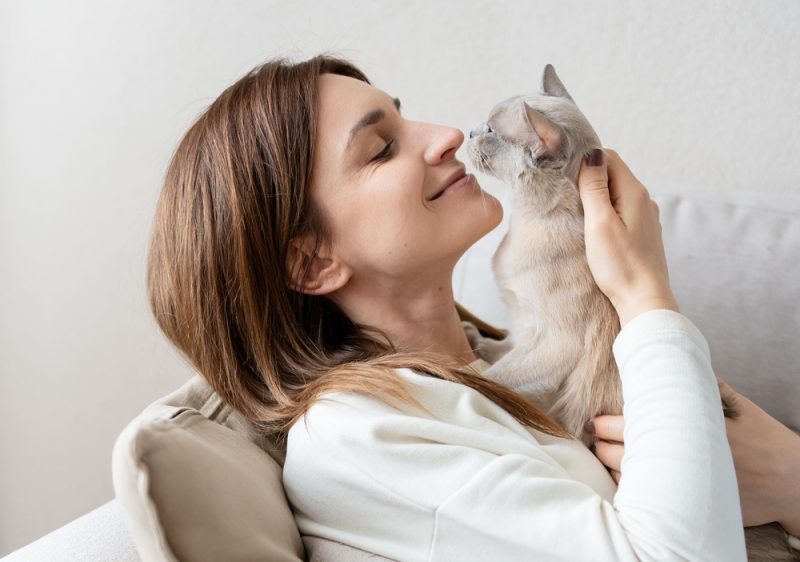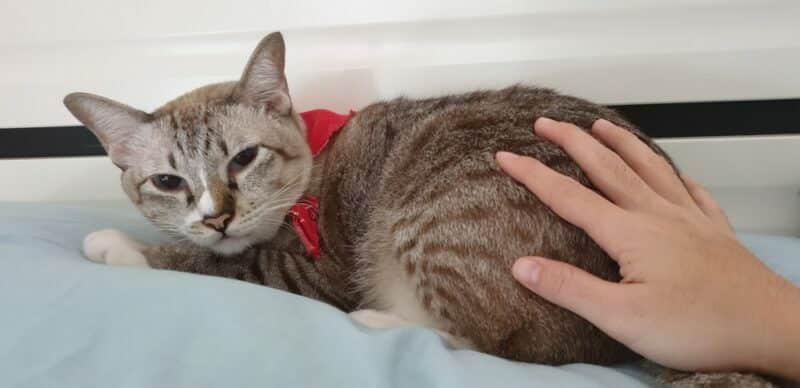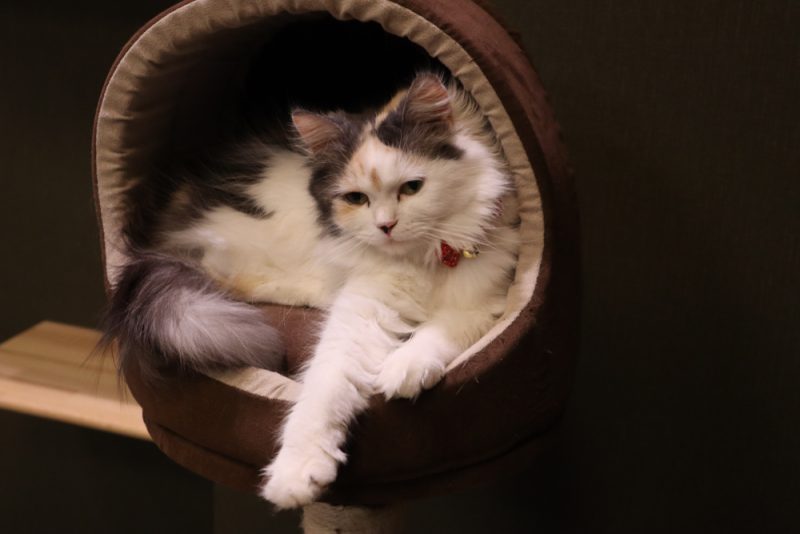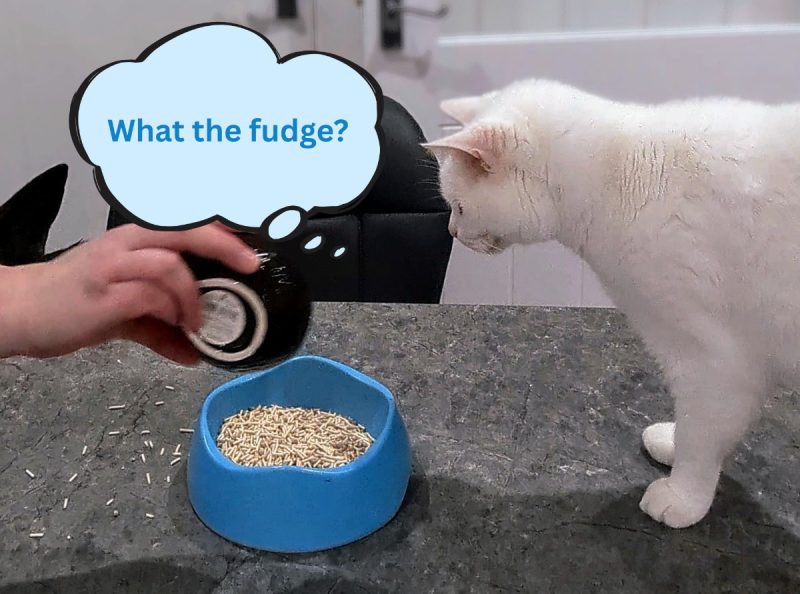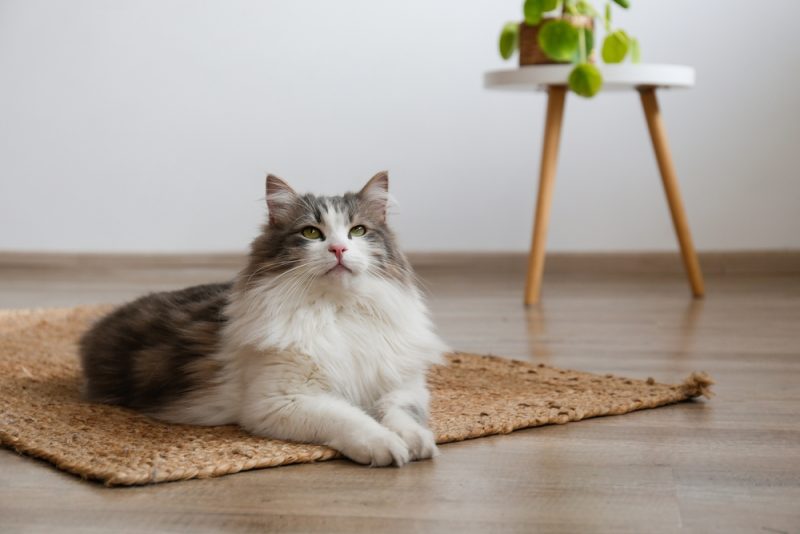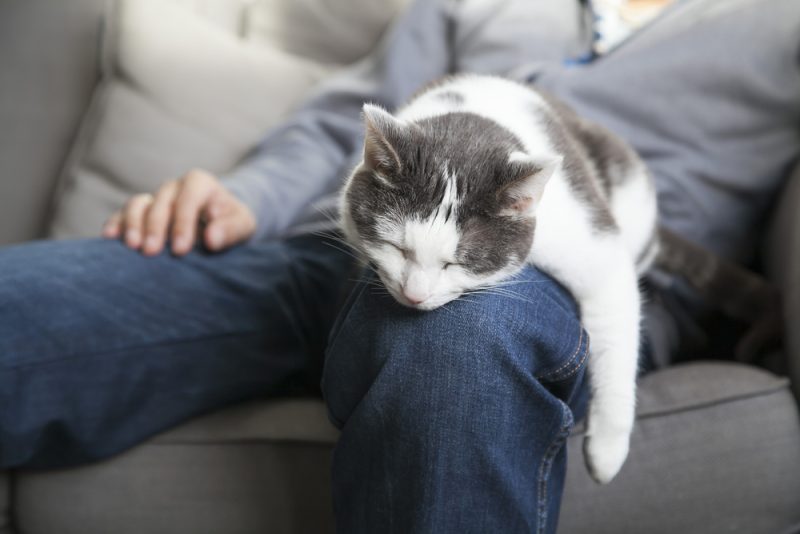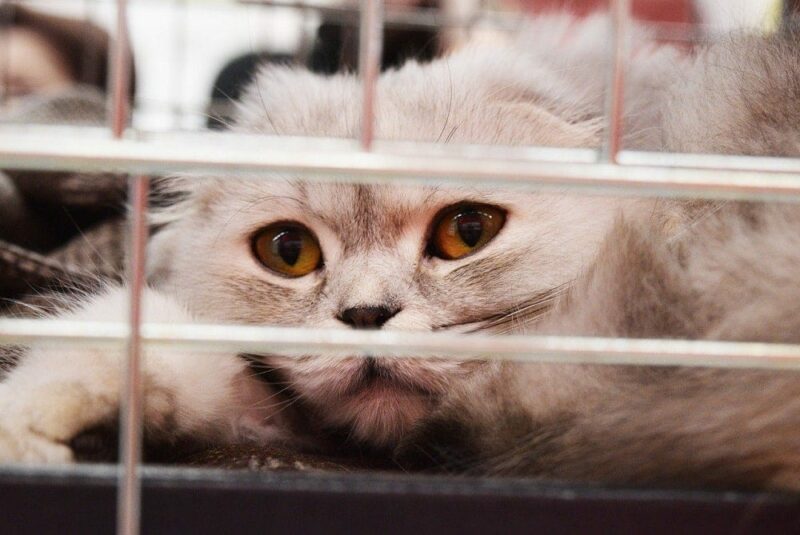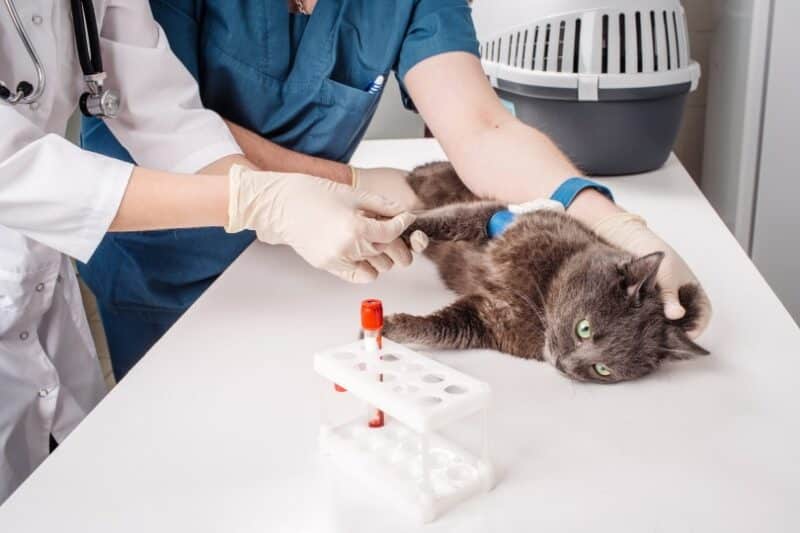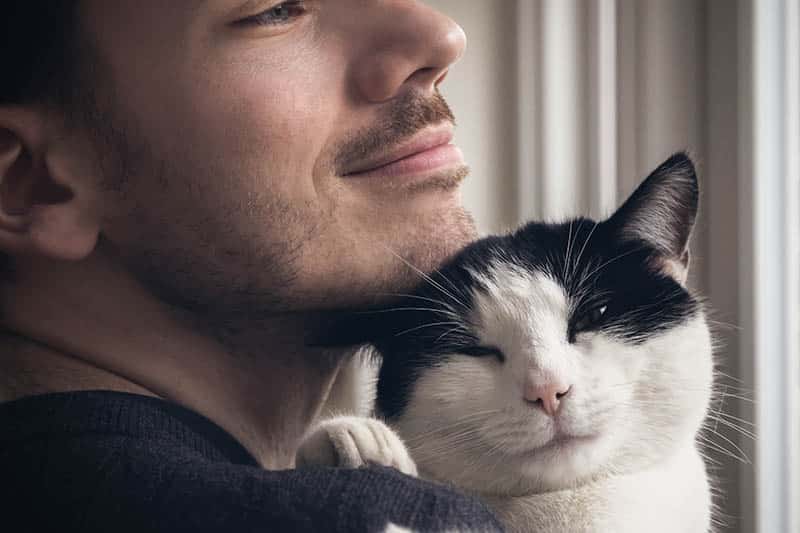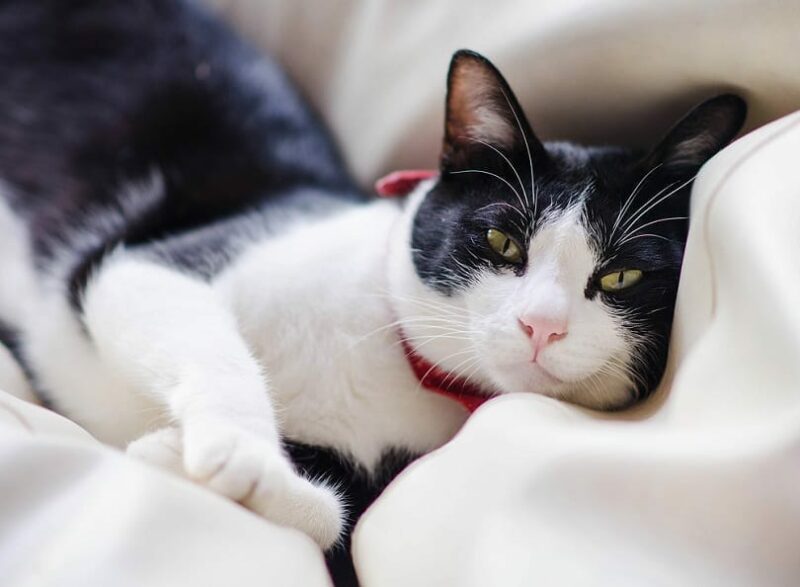In this article
While cats are often considered not to be terribly interested in people, they’re actually sensitive, loving creatures that become deeply attached to those they share their lives with. Companion cats develop bonds with their people that resemble those formed between babies and their caregivers, so it makes sense that some have difficulty when their source of love, affection, and security is unavailable.
While separation anxiety is a behavioral problem traditionally associated with dogs, cats can also develop separation anxiety, and crying when their favorite person leaves is one of the common signs that they display.

What Does Separation Anxiety Look Like in Cats?
Cats with separation anxiety display abnormal behavior only when they are away from their attachment figure. They often pee and poop outside of the litter box and spend lots of time crying and yowling. They may also groom themselves excessively and engage in destructive behavior when experiencing anxiety due to being left alone.
Neutered female cats are more likely to demonstrate their distress through inappropriate defecation and grooming issues, and males are often more inclined to become destructive. Cats that develop separation anxiety like to spend time with their favorite person and may follow them from place to place to get their attention.

Are There Factors That Predispose Cats to Develop the Condition?
A few traits appear to increase the likelihood of cats developing the condition, including being female and the only pet. As with other behavioral problems, cats that suffer from separation anxiety process information abnormally or don’t respond in a standard way to a certain situation. There is no point in blaming family members or recent changes or thinking that the cat would be happier somewhere else.
Since cats are masters at hiding signs of illness, behavioral changes are often the only clues that something may be off, so consult your veterinarian to ensure there’s no underlying physical condition that may be causing the behavior.

Are There Ways to Help Cats With The Condition?
The first thing to do if you suspect that your cat has developed separation anxiety is to speak to your vet. There are several ways to encourage cats to be happy, healthy, and mellow, which can sometimes help manage stress and anxiety. Working with a cat behaviorist can also be helpful in particularly complex situations.
1. Get Professional Help
If you’ve tried everything and still can’t seem to make progress when it comes to being able to leave your cat alone, consider reaching out for help! A veterinarian may be able to provide guidance on behavioral modification techniques, and they can also evaluate whether medication may be helpful in your cat’s specific situation. There are also veterinary behavioral therapists who can help.
If you need to speak with a vet but can't get to one, head over to PangoVet. It's an online service where you can talk to a vet online and get the advice you need for your pet — all at an affordable price!

2. Do Activities
Your cat enjoys spending time with you because it makes them feel safe and loved. So, try spending more time with them. This will not make the problem worse, as some may think. Enrichment activities can also keep cats busy when left alone, which may decrease the stress they feel simply by giving them something else to focus on. Soft music designed specifically for cats may help provide a calming environment and something to keep pets company as the day goes by.
Puzzle feeders that require cats to work for their treats can keep them occupied with something they love (snacks) long enough for them to forget to be upset that you’re leaving.
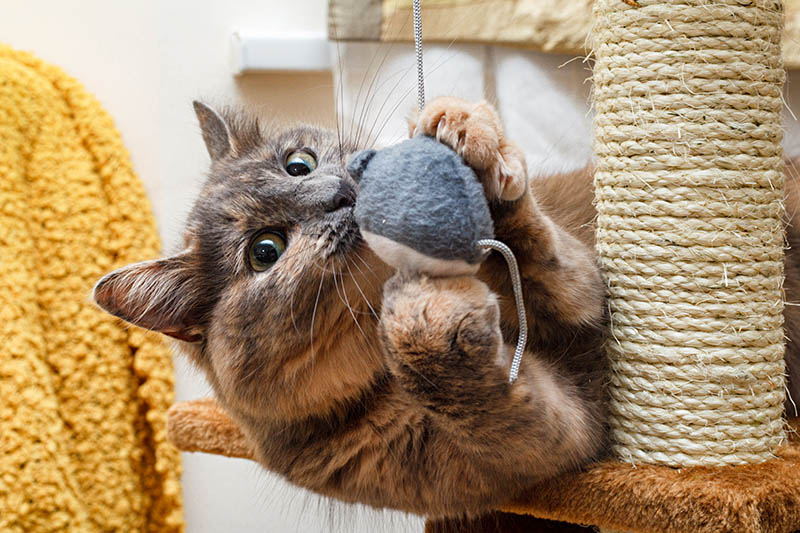
3. Keep Things Mellow
Help your cat feel comfortable when you leave and come home by making the activities around your departures and arrivals non-events. Giving cats something to do while you’re getting ready may distract their attention from anticipating the stress of being left alone. You may also be able to teach your cat to stay relaxed during your departures in part by regularly giving them praise and treats when you see them being mellow. Start small, and reward them when they’re hanging out and appear relaxed.
Eventually, up the ante and introduce a cat bed that your cat can begin to associate with being cool and laidback. Once your cat has the hang of being nice and relaxed while hanging out in bed, practice leaving and rewarding them for remaining calm in their bed as you exit the room.
4. Reward What You Want to See
Punishment never works with cats, and it can increase their stress, which may exacerbate the problem. Rewarding what you want to see is generally the key to getting them to move in preferred directions.
Consider giving your cat praise and treats when you “catch” them hanging out by themselves and otherwise behaving confidently when you’re home. You can also give them treats and cuddles when they stay calm when you come home.
5. Create Routine
Cats sometimes become stressed when their favorite person’s routine changes, and they’re unavailable to provide love when pets have come to expect cuddles and fun.
Try to create and stick with a routine so your cat can spend their day knowing they’ll have cuddle time right before bed or after the dishes are put away.
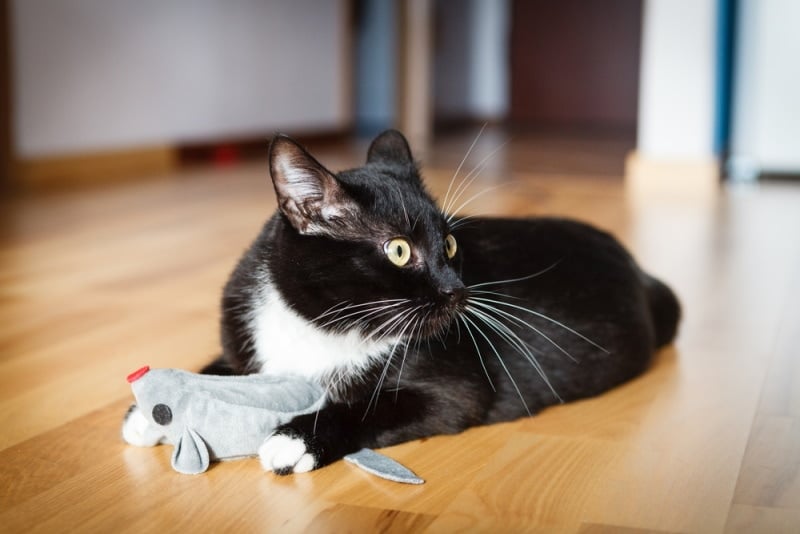
5. Relaxation
You may be able to teach your cat to stay relaxed during your departures, in part by regularly giving them praise and treats when you see them being mellow. Start small and reward them when they’re hanging out and appear relaxed.
Eventually, up the ante and introduce a cat bed that your cat can begin to associate with being cool and laid back. Once your cat has the hang of being nice and relaxed while hanging out in bed, practice leaving and rewarding them for remaining calm in their bed as you exit the room.

Conclusion
Cats that cry or vocalize when their favorite people leave may be suffering from separation anxiety. This often causes cats to eliminate outside of the litter box, groom themselves to the point of excess, and engage in destructive behavior.
Solo indoor cats and those that were weaned early can develop the sorts of intense attachments that lead to separation anxiety. While a veterinarian should always evaluate your cat to rule out other causes for the behavior, a few things may improve the situation, such as providing fun things for your cat to do and implementing routines, which often increase cats’ sense of comfort.
See also:
Featured Image Credit: SoNelly, Shutterstock
